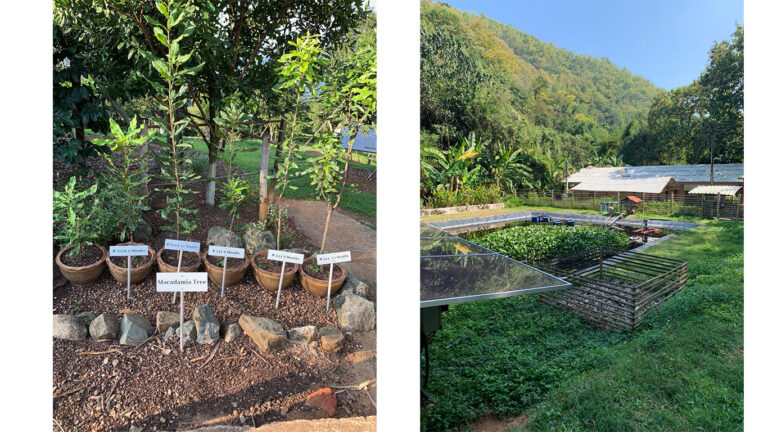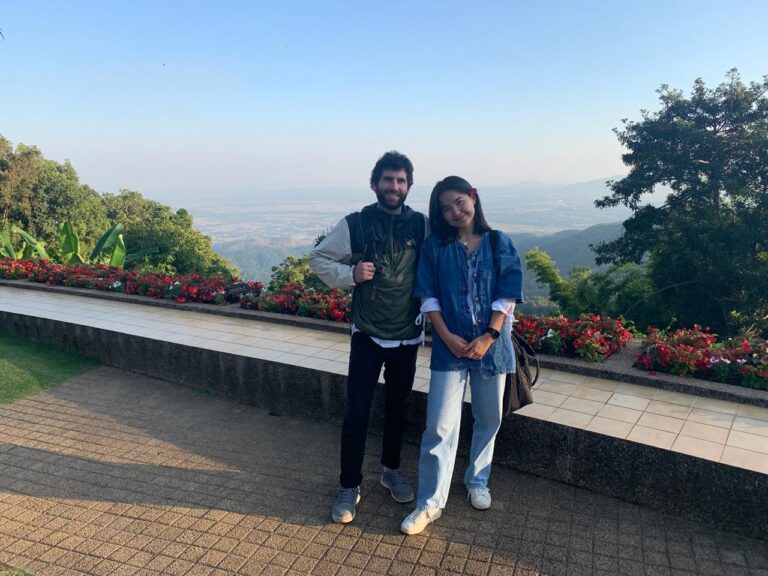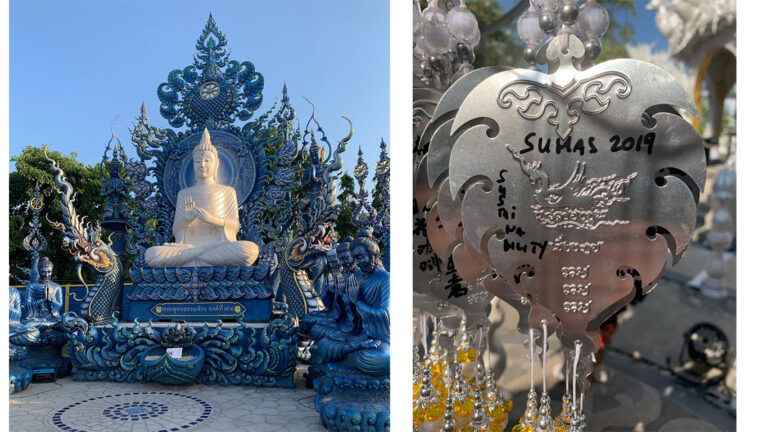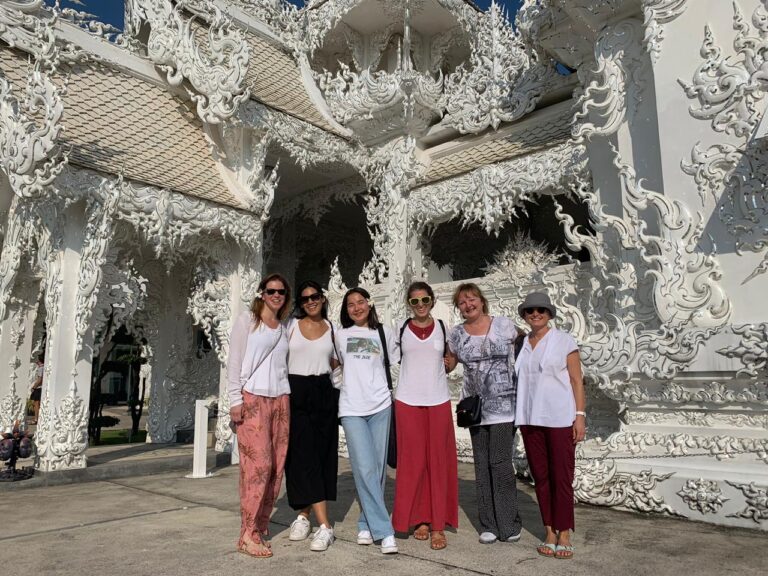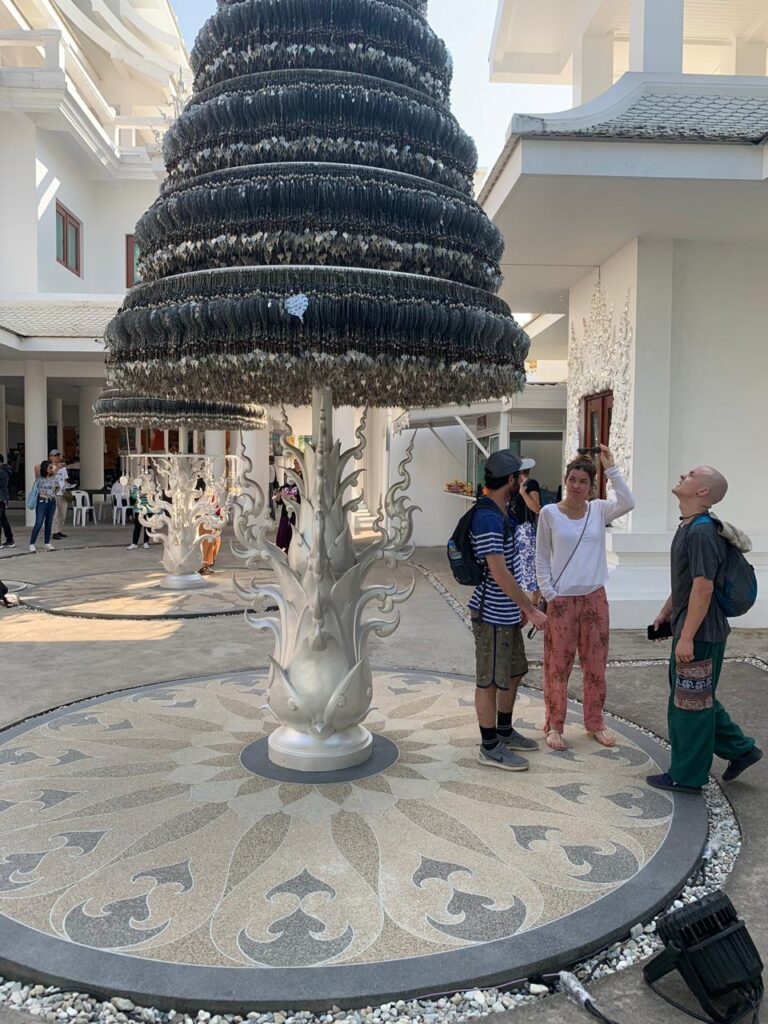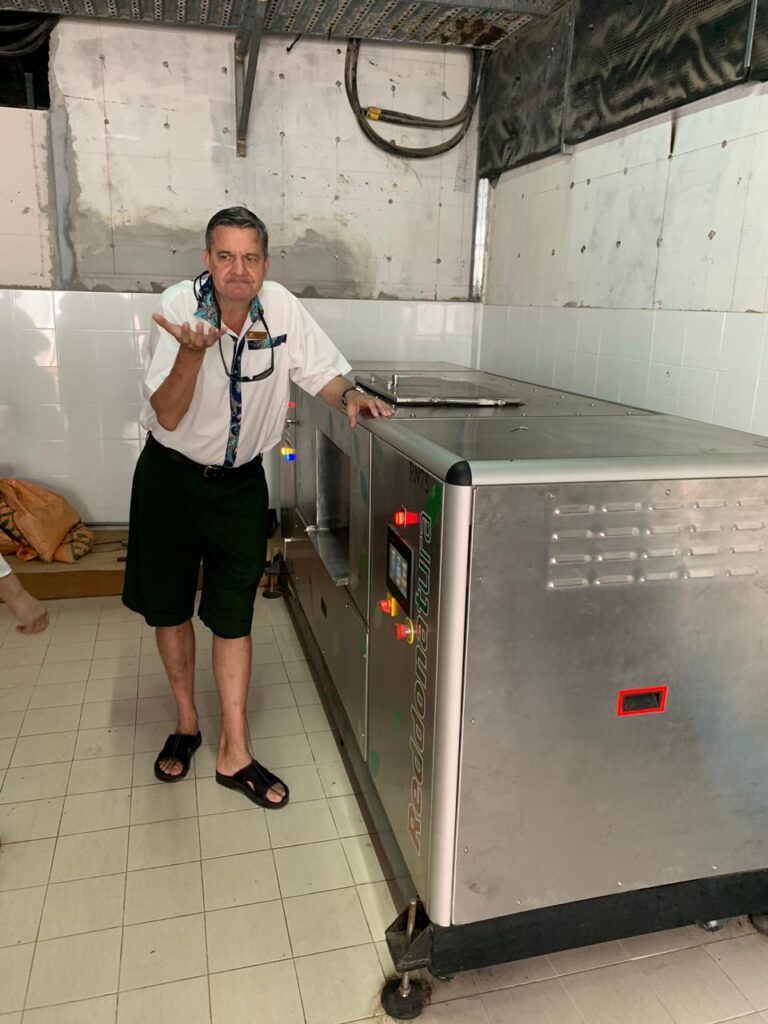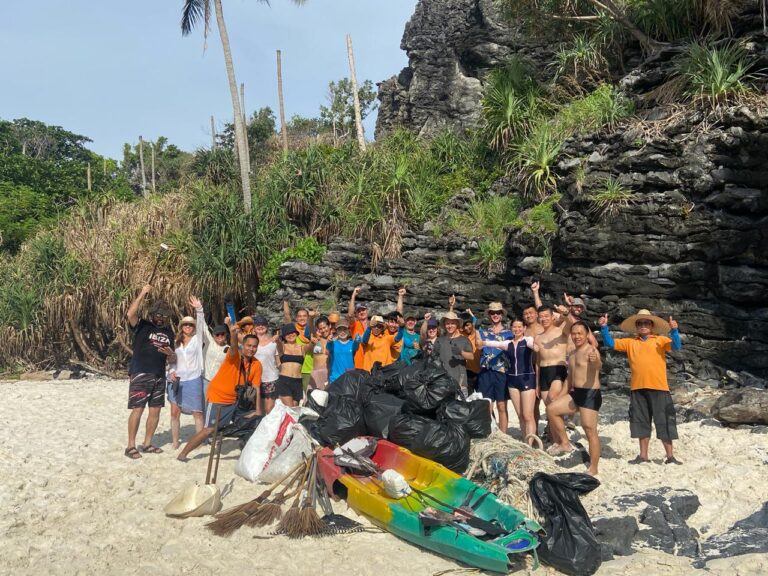In addition to the enchanting natural scenery and delicious food, Thailand is also rich in companies that have decided to build their business on the concept of sustainability. Therefore, a group of SUMAS students, led by director Dr. Ivana Modena, went to sunny Thailand to study successful practices.
The first stop was the city of Chang Mai, where we visited a primary school where children receive primary and secondary education with a focus on sustainable development. On the campus surrounded by nature, there are all the conditions necessary for life and development: educational and residential campuses, a dining room, sports grounds (including golf courses) and so on. At the school, we were given a lecture on social entrepreneurship, and the beauty of nature outside the window only contributed to the assimilation of information. The school director also met with us to receive our feedback.
Next, we went to the residence of the DoiTung company, which built a sustainable business and thereby rehabilitated the whole region of Chang Ray. Our goal here was to agree on the details of a joint project.
As part of project management, we are developing a strategy for the company to enter the sustainable fashion market in Europe and Asia. For a more fundamental understanding of the client, we were introduced to the history of the company. Doytung’s case turned out to be unique – from a small state project in one of the poorest and most criminal regions of Thailand, where opium was cultivated before, the company turned the region into a prosperous one.
Led by the princess Srinagarindra’s mother or “mother from the sky” (she used a helicopter as a transport, so the locals called her that), DoiTung entered into cooperation with several villages and pursued them to create and manage eco forests (coffee and macadamia trees) instead of poppy fields. Those forests later provided local residents with provisions and income. Thanks to this, the local population gained access to social benefits and began a new, happy life. Dr. Sandro Calvani, senior advisor on strategic planning shared with us the formula for the success of this project during his lecture: in order to achieve thriveability, you have to combine sustainability and team spirit.
Following this formula, the company has gradually expanded and now DoiTung works in 3 directions: coffee and nuts, ceramics and clothes. After visiting the production workshops we were convinced that the company strives for sustainable solutions in all these aspects. During our 3 days stay at the DoiTung residence we also explored the main attractions of this place: Hall of Inspiration, Princess Garden and house.
The next stage of our journey was the city of Chang Rai. Here we spent only one day, and even in such a short period of time we discovered many surprises the city had to offer. We visited two famous Buddhist temples: a neo-Buddhist white and a blue temples. One tourist bus was replaced by another, crowds of tourists walked around the perimeter of the temples, studying their sights, but this did not stop us from enjoying the grandeur and beauty of these places and taking memorable pictures.
The final chord of our program was the visit of the Zeavola hotel on the islands of Phi Phi, near Phuket. Sustainable hospitality students work with this luxury hotel in a joint project. The main purpose of our stay was to study the specifics of managing sustainable hotels.
General Manager Florence conducted a study tour for us, during which he demonstrated the differences between Zeavola and local competitors. The water supply system, the recycling workshops and, most importantly, well-coordinated work of the staff, allow the hotel to increase profits through more efficient use of resources. We learnt about the best practices of implementing sustainable solutions and the importance of shared values and team spirit as a strategic factor in the success.
We joined one of the regular staff events at Zeavola: our group went to the public beach at one of the nearby islands to collect garbage. It turned out to be more fun than I could ever imagine! Tourists resting on the beach voluntarily joined us, so, by joint efforts, we collected several dozen bags of garbage and contributed to the improvement of this place.
I was greatly impressed by the study trip to Thailand. At the end of the program we discussed these cases and how this knowledge can be useful in the future. Inspired by Thai companies experience and full of new ideas, we went on our Christmas vacation. I am grateful to all participants of experiential camp for this invaluable experience!


